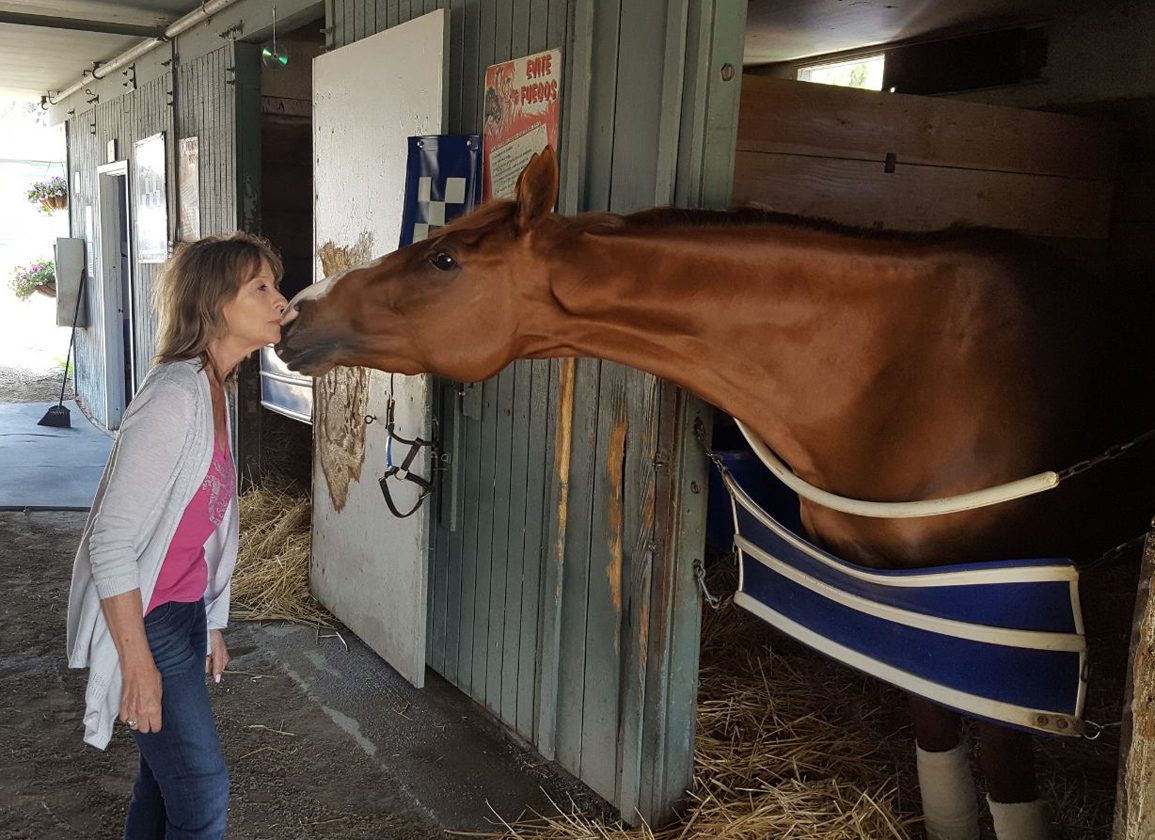By Dan Ross
Seven months after learning they were one of a handful of racehorse rehoming and animal rescue organizations bequeathed a large sum of money by owner Nancy Messineo, the California Retirement Management Account (CARMA) have received the “significant gift” and are in the process of figuring out how to best use it.
“We received this gift the end of last year right before Christmas,” said Lucinda Lovitt, executive director of the non-profit founded 15 years ago to raise money for the state's fleet of retired racehorses.
“It's timely in the sense that we have this big shift coming in California,” Lovitt added, alluding to the planned closure of Golden Gate Fields in June. “It gives us some flexibility and freedom to meet the needs where they are or where they will be.”
Messineo, who died in June at the age of 74 after a long battle with cancer, left CARMA, the Wild Horse Sanctuary, Red Bucket Sanctuary, the Society for the Prevention of Cruelty to Animals and the Thoroughbred Charities of America sums totaling roughly three-quarters of her estate.
Messineo's gifts came as a welcome surprise to these organizations, but didn't surprise those who knew her well. “She just loved animals,” said Bruce Sands last June, of his close friend, a long-time racehorse owner.
While CARMA is still in the process of deciding how to deploy the funds, Lovitt said that Messineo had specified in her will for the money to be used in the organization's placement program.
In short, that program acts as a bridge to funnel a retired racehorse toward the right aftercare organization–to prevent, for example, a horse with the skills for a fruitful second career from going to a lifetime retirement sanctuary.
“We're providing a service for our horsemen and we're providing a service to our aftercare partners because we're making sure that they're getting horses that fit their program,” said Lovitt.
CARMA's placement program comes with caveats. The owners must have participated in California's CARMA purse contribution program. The horse must have raced or worked at a CHRB (California Horse Racing Board)-licensed track or training center in the last six months. And the horse must be a gelding, filly or mare.
Lovitt declined to specify the amount gifted but stressed its impact on the organization. “Right now especially, it's really wonderful to have this safety net,” she said.
Not a subscriber? Click here to sign up for the daily PDF or alerts.






